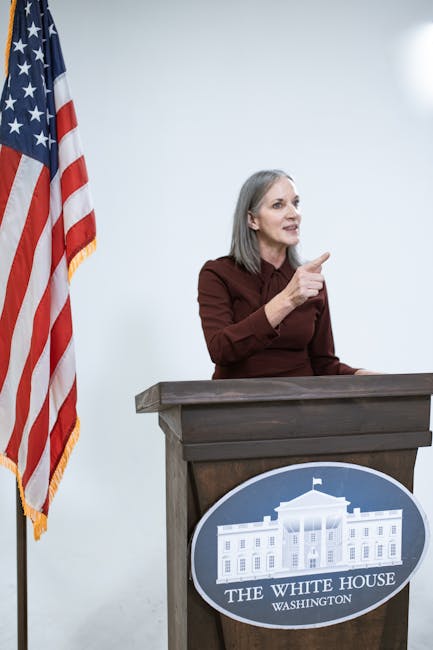AI Expert and Military Advisor Joins Aerospace Firm’s Advisory Board
WASHINGTON, D.C. – Artificial intelligence (AI) expert and advisor to the United States Central Command, Charlie Burgoyne, has joined the corporate advisory board of XTI Aerospace, the company announced this week. This move signals a growing convergence between advanced technology, national security interests, and the burgeoning private aerospace sector in 2025. Burgoyne’s extensive background in AI and military strategy is expected to contribute significantly to XTI Aerospace’s future development and innovation.
Burgoyne’s Expertise and Military Ties
Burgoyne’s appointment to XTI Aerospace’s advisory board reflects a trend of increasing collaboration between the military and the private sector in the development and implementation of advanced technologies. His role advising the US Central Command underscores his expertise in applying AI to complex strategic challenges. His experience in national security and defense could prove invaluable for XTI Aerospace as it navigates the regulatory landscape and explores potential military applications of its technology. This strategic alliance highlights the blurring lines between national defense and commercial ventures in the rapidly evolving aerospace industry.
AI’s Role in Aerospace
The application of AI in aerospace is rapidly expanding. AI algorithms are increasingly being used for tasks such as flight optimization, predictive maintenance, and autonomous navigation. Burgoyne’s expertise in this field will likely play a crucial role in guiding XTI Aerospace’s development of AI-powered systems for its aircraft. His insights into the potential of AI to enhance safety, efficiency, and performance will be a key asset to the company’s technological advancements. The integration of AI is expected to streamline operations and enhance the overall capabilities of XTI Aerospace’s projects.
XTI Aerospace’s Strategic Goals and Ambitions
XTI Aerospace is pursuing ambitious goals within the aerospace industry, focusing on developing innovative aircraft technologies. The company’s advanced projects are poised to disrupt traditional aviation models and redefine air travel. Burgoyne’s addition to their advisory board suggests XTI Aerospace aims to leverage cutting-edge AI capabilities to achieve its strategic objectives. His experience may help the company navigate the complexities of integrating AI into its operational strategies and long-term development plans. The recruitment of Burgoyne underscores a proactive approach towards technological advancement and market leadership.
XTI Aerospace’s Technology Focus
XTI Aerospace is currently focused on developing hybrid-electric propulsion systems and advanced flight control systems. These technologies could significantly improve the efficiency and environmental impact of aircraft operations. Burgoyne’s expertise in AI could be instrumental in optimizing these systems for maximum performance and efficiency. His involvement suggests XTI Aerospace aims to lead the development of environmentally friendly and cost-effective air travel solutions. Integration of AI is critical for effective management of these systems and their overall effectiveness.
The Broader Implications of the Partnership
The partnership between Burgoyne and XTI Aerospace highlights several broader trends within the technology and aerospace sectors in 2025. The increasing intersection of national security and private sector innovation, the rapid advancement of AI in various applications, and the growth of the private aerospace industry are all significant developments shaping the future of global technologies. This collaboration is a microcosm of these intertwined trends that are rapidly reshaping the global landscape.
Key Takeaways from the Partnership:
- Increased collaboration between military and private sector: This partnership showcases growing cooperation in the development and application of advanced technologies.
- AI’s prominent role in aerospace: The partnership underlines the increasing reliance on AI for optimizing aircraft design, performance and safety.
- Focus on innovation and technological advancement: This alliance signifies a commitment to developing cutting-edge technologies to revolutionize air travel.
- Potential for future military applications: Burgoyne’s military background raises the possibility of XTI Aerospace’s technologies finding applications within the defense sector.
- Growth in the private aerospace sector: The partnership reflects the expanding private sector’s influence on aerospace research and development.
The Future of AI in Aerospace and National Security
The integration of AI into the aerospace industry and its potential implications for national security are significant issues for 2025. Burgoyne’s appointment suggests a future where the lines between military technology and commercial applications continue to blur. His expertise in both areas makes him uniquely positioned to help bridge the gap and facilitate responsible innovation. This trend is likely to continue, potentially leading to faster technological advancements and more efficient solutions.
Ethical and Security Considerations
The use of AI in military and commercial aerospace raises important ethical and security considerations. The potential for autonomous weapons systems and the misuse of AI technology are significant concerns that require careful consideration and regulation. Burgoyne’s experience in national security will likely play a crucial role in XTI Aerospace’s approach to these complex issues. His expertise will be essential in ensuring responsible development and deployment of AI-powered aerospace technologies. Transparency and responsible governance will be critical aspects of navigating these challenges.
Conclusion
Charlie Burgoyne’s joining of XTI Aerospace’s advisory board marks a significant development in the convergence of AI, national security, and private aerospace. This partnership underscores the increasing importance of AI in shaping the future of air travel and defense capabilities. The future implications of this collaboration are significant, potentially leading to breakthroughs in technology and raising crucial ethical considerations requiring ongoing scrutiny and responsible governance. The ongoing relationship between these sectors will be a key area to watch in the coming years.

